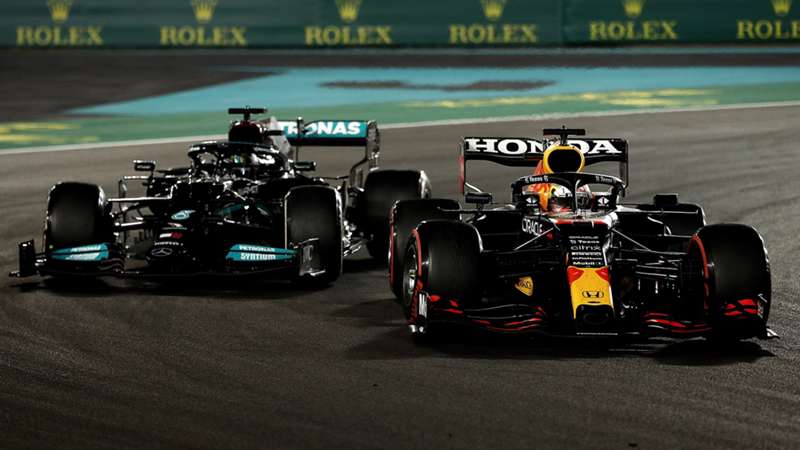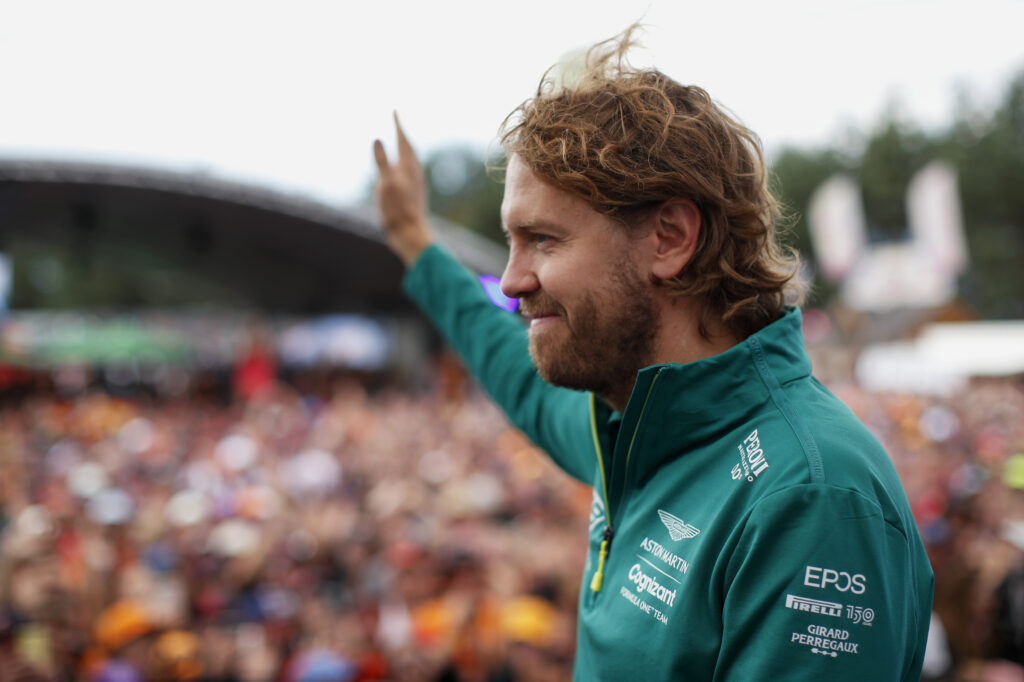Michael Masi left at the end of 2021 because there was simply no more climate, but it is quite clear that the FIA and F1's problem was not only him. The decision to have two race directors in 2022 is already proving ineffective and rarely has the category seen its drivers so publicly dissatisfied as in this first half of the championship

Race management and the FIA's command of F1 have never been more in question than in the last few months. At least not in the most modern era of the category. What seemed to be going well in the years after the death of Charlie Whiting went awry with the explosive dispute between Lewis Hamilton and Max Verstappen, and not even the departure of the guilty party was enough to stop the bleeding. On the contrary.
Of course we are talking about Michael Masi and, honestly, there is no way to talk about the direction of F1's race management without mentioning the controversial Australian. Chosen to replace the legendary Whiting, Masi arrived under suspicion in 2019, but, between ups and downs, he left a very positive impression in his first two years. Only then F1 decided to have a real fight for the cup. And Masi felt it.
It was the first time Michael was actually required, after all. In 2019 and 2020, two championships easily won by Hamilton and Mercedes, but which also had their controversies, especially with Ferrari's engine accord in 2019. But 2021 had the totally new element of championship contention, and then things got complicated. It became a circus of horrors, with controversial decisions and many people contributing to the chaos.

Masi ended up in the middle of a crossfire between Red Bull and Mercedes. It was as if he was one trying to hold back two fierce battalions that hated each other more with each race. It got to the point where the Australian was being harshly criticized by both sides, and even before the final in Abu Dhabi, it seemed clear that he would be sacked at the end of 2021. It was untenable.
"I feel you have too many rules to a certain degree. I feel that the sport today misses Charlie Whiting. I apologize for saying this, but he had experience," Red Bull boss Christian Horner said shortly after the Saudi Arabian GP, in one of the many controversies of 2021, with Verstappen being punished and criticism pouring in from both sides.
Then came the championship final, and Masi ended up playing a fundamental role in the title decision. When Nicholas Latifi crashed in the final laps in Abu Dhabi, the Australian could very well have given the red flag, something he used a lot during his tenure and that, in a way, was highly praised by fans of the category. But the race director was afraid to get too involved. And he got even more involved later in the race.
Michael looked inert, almost in shock at that Canadian's Williams standing on the wall. It was as if he seemed to be asking the heavens for someone to get the car out of there without him having to take any action. But the life of a race director is not like that. Hearing an unrestrained shouting from Toto Wolff and Horner, he finally decided to let the laggards out of the way that separated Hamilyon and Verstappen, but he did it in an almost 'freestyle' way. And then, without any explanation, he just let those laggards take the lap and did not allow, for example, Carlos Sainz to attack the Dutchman.

Everyone knows the end of that story: Verstappen, on new tires, passed Hamilton, who was dropped on track by Mercedes, on used tires. Lewis never accepted the defeat, he left the season angry. Wolff went to the microphones, he pushed so hard that Masi crashed. There was no way out.
It turned out that, even with Masi's terrible performance in 2021, a good part of the grid did not want the manager to leave. Sebastian Vettel was one of the most vocal in this regard, but Williams also defended it, as well as the McLaren duo. Much more than saying that Michael was a great race director, it seemed that this group knew that things could get worse. If it was bad after Whiting, it could be terrible after Masi. It is being, in fact.
With the Australian out, the new FIA presidency, headed by Mohammed Bem Sulayem, has chosen to innovate. Without having anyone thoroughly prepared for the position, the entity bet on a kind of "board of race directors", taking the commanders of the WEC and the DTM, two of the main championships in world motor sports, for the function.
Two experienced names, with experience, but who definitely had nothing to do with Formula 1. And time is starting to show that. Eduardo Freitas, Portuguese, was used to chaotic races in the Endurance World Championship, but with a quite different functioning in relation to the F1 world. German Niels Wittich, on the other hand, had an even more controversial announcement, since he was responsible for running the DTM in the 2021 finale, which managed to be more controversial than F1's. Perhaps the most scandalous in motor sport in recent times, with purposeful crashes and everything.

With half of the 2022 F1 season already over, the balance for the duo is not good at all. It is true that they have not yet had an episode as striking as the 2021 final, but let's be fair: Freitas and Wittich, so far, have had a very quiet championship, without fierce track disputes, without a fierce fight for the title, not even with the teams pushing hard. And yet they are getting very complicated.
Inconsistent decisions on track limits, disputes for position, VSC or safety-car activation at odd moments, confusions at moments in the drivers' briefings. In half a year, both are already shaking in office and the weekend in Austria showed how great the pressure is, either by the weird calls from the commanders or by a series of angry statements from the drivers.
All this comes weeks after Hamilton, the man who had the most reason not to want to see Masi even painted gold, said he "has no opinion" about a possible comeback of the Australian, at the time cogitated by Bem Sulayem himself. Vettel went further and said that he "missed" Michael. Not surprisingly, then, the four-time champion is one of the most vocal against Freitas and Wittich these days.
"I don't know. I had 3 (warnings), but I didn't get a warning - so I don't know how I might have been punished. What I was told until the last one was that I had 3 warnings. Out of the blue they saw 5? It's a bit strange," Vettel declared after the Austrian GP. But the German, who has been fined by the FIA even with some frequency for issues that go beyond the races themselves, drew more attention for having dropped the drivers' briefing in the middle and exposed, without any fear, the chaos that has been affecting the management of the races.

Sebastian, definitely, is not the only one dissatisfied. In a weekend marked by Sergio Pérez eliminated from Q2 with hours of delay for track limit in an unprecedented decision and a monstrous rag-pass for about a third of the grid who broke the rules and talked to his engineers during the presentation lap at the Red Bull Ring, names like Mick Schumacher and George Russell also slammed the current command.
"I felt that we were going around in circles with some things that were being discussed. It was taking more time than necessary. I completely understand 'Seb's' [Vettel] attitude, and I think several other drivers also felt the need to leave the meeting," Mick commented.
"Throughout the season, there are already several drivers who have commented on the topic. That's why I believe that when you only have one race director, the decisions can usually be more consistent," complained Russell, the drivers' representative at the FIA and who complained directly about the relay that has been taking place between Freitas and Wittich, even though the German, known for his greater strictness, is the one who will be acting the most in 2022.
Russell's statement, an important leader of the drivers, goes in the same direction as the hypothesis raised weeks ago by Bem Sulayem of calling Masi back. In a way, the category is starting to miss the Australian, but more than that, it misses having a unique and reliable race director.
The reality is clear: F1 and the FIA do not have a name capable of filling this gap now and, most likely, not even in the coming years, after all, Masi has already been officially dismissed from the entity when it seemed possible for him to return.
The tendency should be to go with Freitas and Wittich and, who knows, at the end of 2022, opt for one of them. It may work out, but the current experience makes the category have to fear a new hot dispute for the title. Because there certainly will not be enough command to control it.